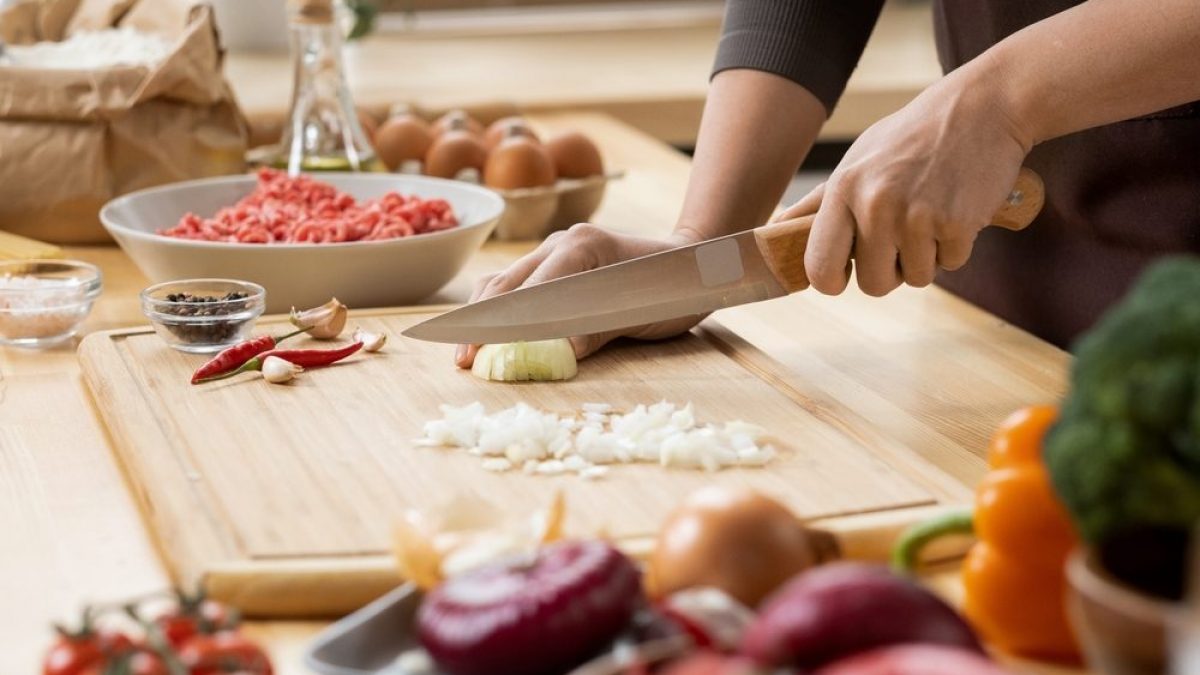
Sustainable gastronomy: everyone's talking about it, but few really know what it is. Making choices that reduce our impact on the planet, organizing our shopping to avoid any kind of waste, trying to minimize our waste: these are (among others) the virtuous behaviors that can truly change our lifestyle, helping to reduce the pollution that humans have been generating for centuries, simply by adapting to the rules of sustainable cuisine.
A good portion of this pollution, in fact, is generated by food production, especially mass production: and this is where we must intervene first, to do our part. Remember that it is precisely the sum of individual behaviors that creates a collective movement and therefore triggers change. Because the future we are facing depends above all on us.
The Terms of The Problem: How Much Food We Waste
Each American family wastes an average of nearly 20 pounds of food per year, which is about 370 grams (0.82 pounds) per week. These figures are similar to those in the Netherlands (365 grams per week) but lower than those in Spain (534 grams), Germany (534 grams), and Hungary (464 grams). The data, from the Food Waste Observatory of Crea Alimenti e Nutrizione, dates back to 2018. However, compared to the other countries analyzed, the U.S. holds another unfortunate record: we discard the most completely unused products (43.2% versus 31% of the wasted amount), while we are less likely to throw away plate leftovers (14.6% versus 20.0%) or opened but unused products due to their expired date (30.3% versus 36%). In 2021, household food waste in the U.S. increased, reaching 420 grams (0.93 pounds) per week per family.
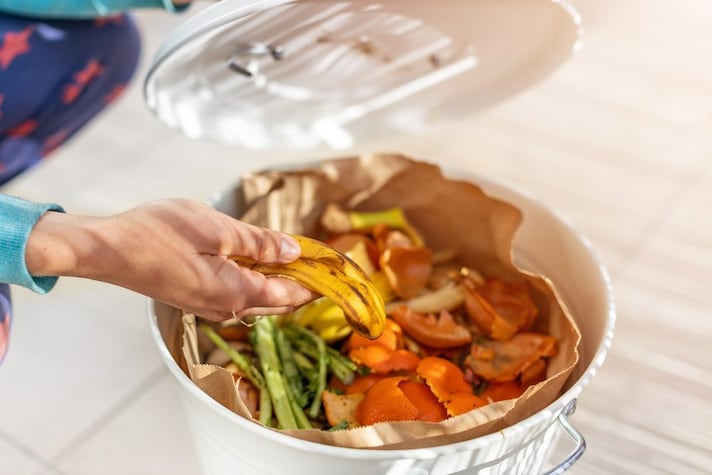
How to Practice Food Sustainability
There are virtuous behaviors that, while easy to implement, are still not followed by the majority of consumers. Food awareness begins precisely with this premise: we make choices that impact our environment (and the communities that live there), so instilling virtuous behaviors is an individual responsibility. Here's what you can do to reduce your impact on the planet, starting with your diet.
1. Choose Only Energy-Efficient Appliances

While buying an "economical" appliance may seem like a good idea in the short term, in the long run it will impact not only the environment but also your wallet, increasing your expenses. The key thing to do when choosing appliances is to research their consumption and choose the most efficient model that your budget allows. This applies not only to large appliances like dishwashers, ovens, or refrigerators, but also to everyday utensils like pans, pots, knives, and so on: remember that sooner or later you'll have to dispose of them, so the longer they last, the better.
Also, find out which time slots you waste the least, if your bill is set to this system: turning on appliances at the best times means reducing water and electricity waste.
2. Treat Tools and Appliances With Care
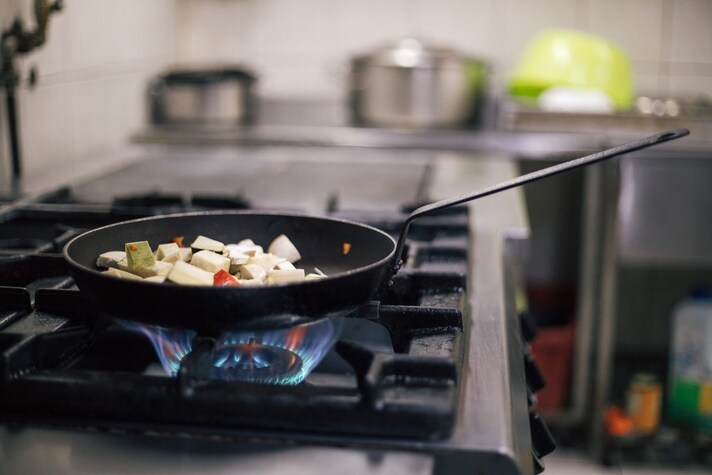
Cleaning the oven thoroughly, keeping the refrigerator at the right temperature, and properly storing cookware, pans, and cutting boards: all of this is incredibly important if you want to extend the life of your tools as much as possible and avoid having to buy new ones. If the age of consumerism has convinced us that rather than making objects last, it was easier to buy new ones, this trend must definitely be reversed: try to make your tools and appliances last as long as possible , which means reducing bulky waste that needs to be disposed of properly.
3. Recycle Correctly
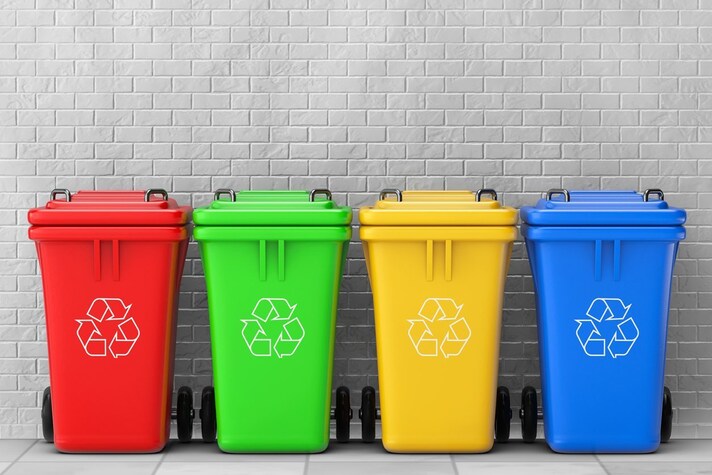
A decade ago, many wouldn't have bet anything on the separate waste collection system, yet we've slowly gotten used to it. Remember to dispose of kitchen products properly; some of them, in fact, shouldn't be thrown away with regular waste. Pay close attention and check your local regulations: many of the materials we use, if released into the environment, are highly polluting. If you can, reuse the compost for your garden or vegetable patch.
4. Reduce Water Waste

If you can, reuse the water you use as much as possible: even pasta or potato cooking water can be reused in creative and useful ways. Remember to use the right amount of water for cooking, try to avoid using hot water when not needed, and never defrost under running water: these and other rules will help you reduce water waste and reduce your water bill.
5. Shop Carefully
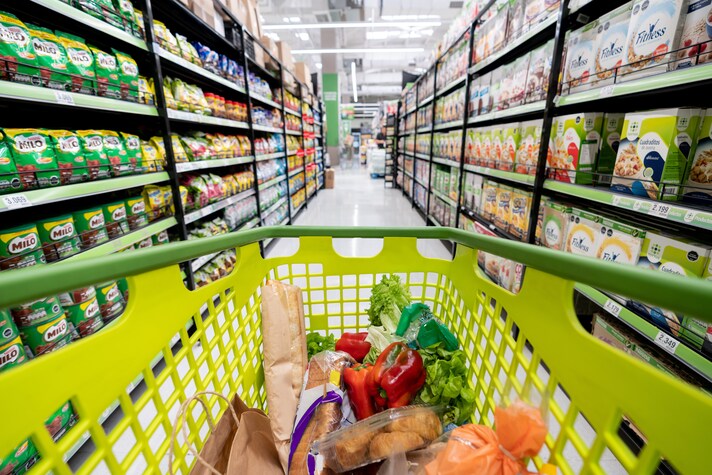
Shopping wisely is the first rule for a truly sustainable diet. First of all, never go grocery shopping on an empty stomach: organize your shopping list rationally only after checking your fridge and pantry. Always buy seasonal foods, whether vegetables, fruit, or even fish.
Remember to stockpile non-perishable foods like pasta, jarred or canned legumes, flour, and so on, if you like, but buy perishable foods like vegetables, fruit, meat, and fish in small quantities. Read labels carefully to find out where the product comes from, how it was grown or raised, and when it should be consumed by. If you've bought too much food, freeze it properly: this also applies to leftovers. Always choose local produce over large-scale retail outlets: not only for quality reasons but also to reduce transportation and intermediary costs.
6. Always Prefer Loose Products
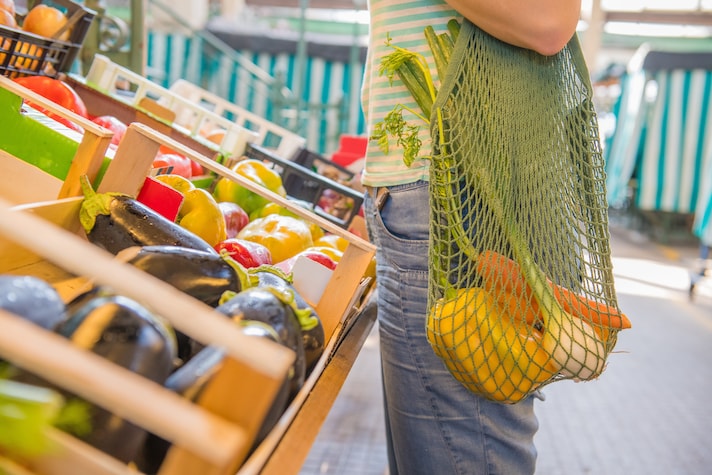
Whenever possible, buy loose foods: not just vegetables, fruit, meat, or fish, but also cereals, oil, biscuits, and even soap and detergents. Many stores now allow you to buy loose items, providing you bring your own bag. This way, you'll reduce your packaging and the amount of waste you recycle.
7. Store Food Well
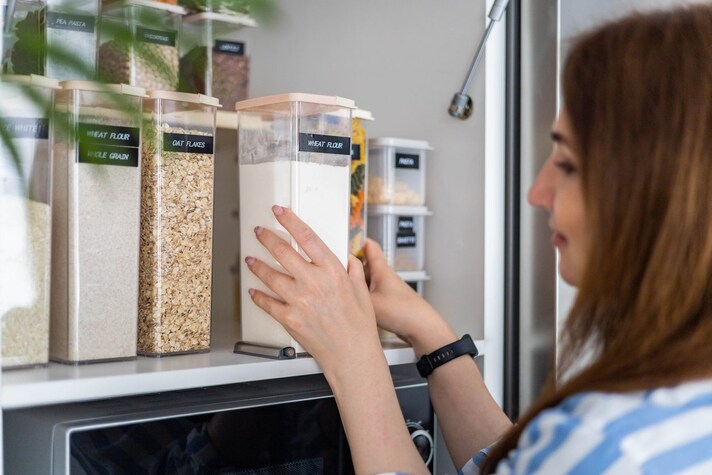
A good portion of waste comes from the fact that improperly storing food in the refrigerator or pantry causes it to spoil faster. If you've read the data on food waste in the U.S., you'll have noticed how we tend to throw away whole foods because they're spoiled. Therefore, you must first store products correctly, placing foods with the closest expiration date at the front and those with the furthest expiration date at the back. This way, you'll avoid "forgetting" the more perishable items.
8. Learn About Leftover Cooking
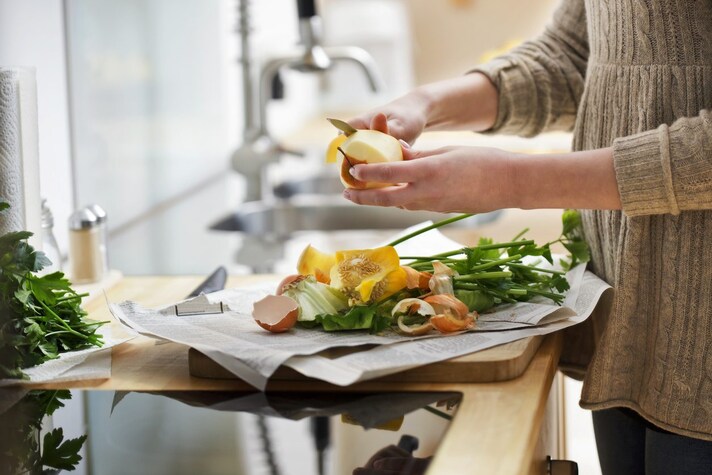
There are so many edible parts of products that we throw away simply because we don't know how to reuse them. But cooking with leftovers has always existed in the U.S.: it's what our grandparents and great-grandparents did, reusing all—or almost all—of the parts of vegetables or meat that weren't sold. You can therefore learn how to reuse these scraps: you'll be more surprised than you think to discover how tasty the parts of the foods you've been throwing away can be.
9. Grow What You Can Grow
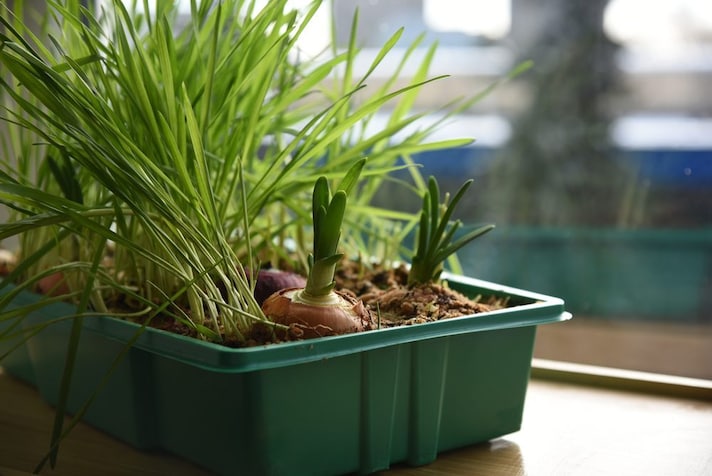
If you have a balcony, a sunny windowsill, or a garden, you can enjoy growing aromatic herbs or small vegetables: besides reducing your shopping expenses, it will be truly satisfying to harvest them and use them in the kitchen. Of course, use quality soil and make sure you don't expose your plants to sources of pollution.
10. Treat Yourself to Dinner Out Every Now and Then, But at The Right Restaurant
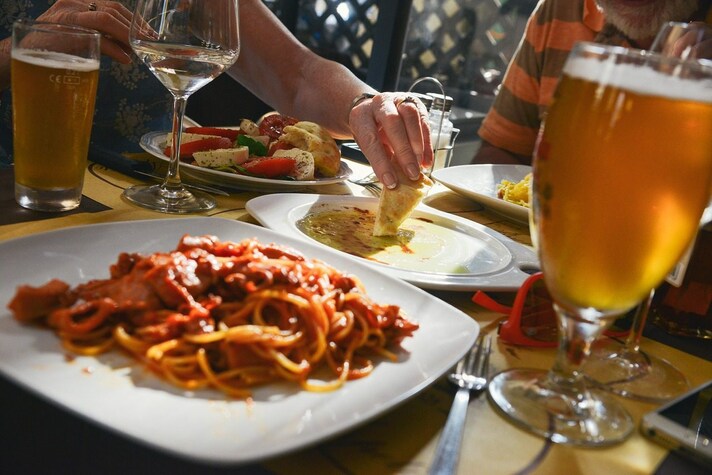
Going out to dinner is a pleasure: but, even on these occasions, it's important to choose the right restaurant. Trattorias that work with local producers, restaurants that follow a certain style of sustainable cuisine, restaurants that guarantee seasonality, freshness, and respect for the raw materials: all this may seem rhetorical, but it's important – even when you indulge in a moment of leisure – to do so with awareness and respect for others.
;Resize,width=767;)
